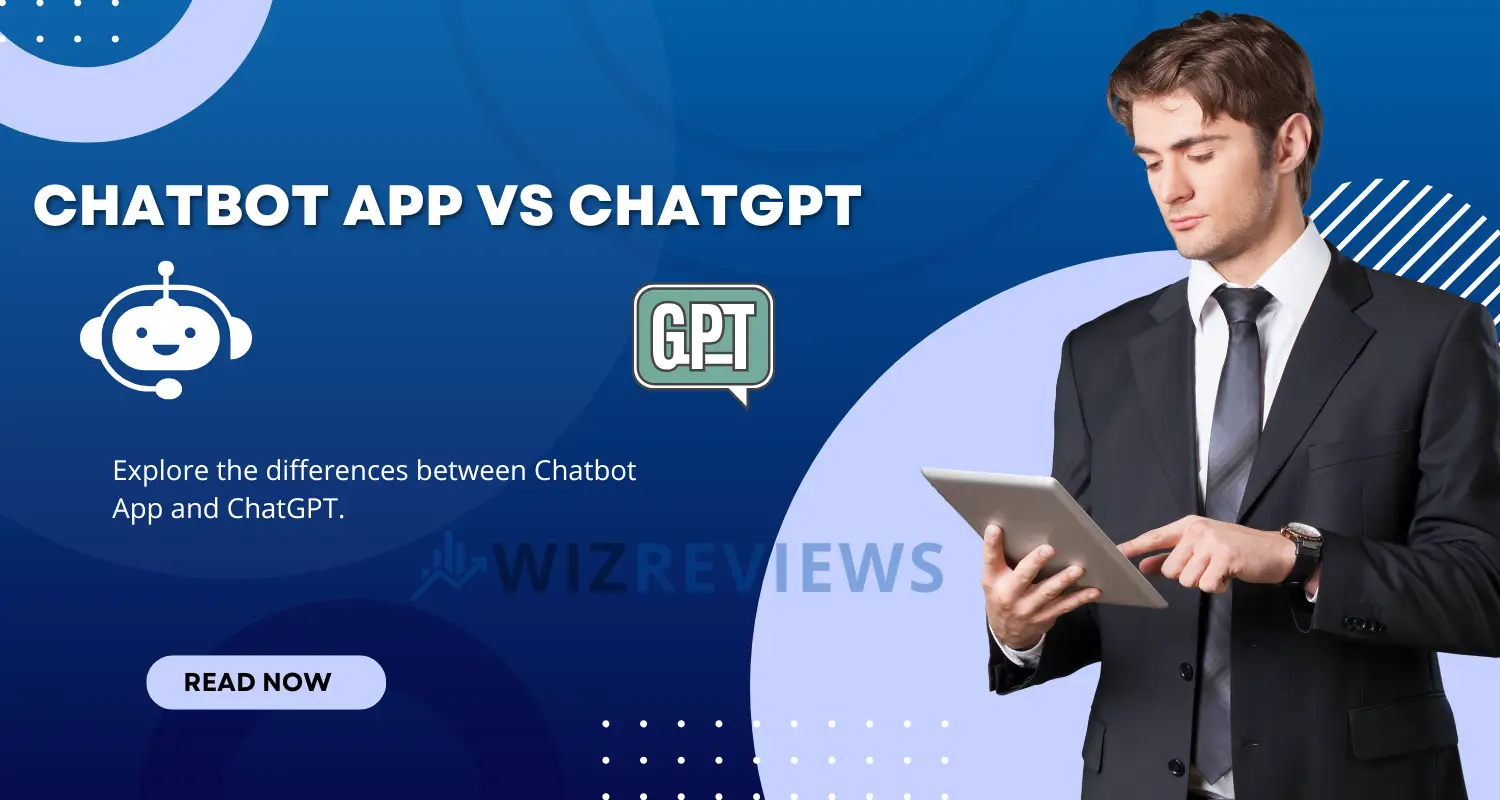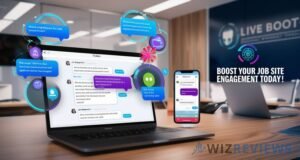In today’s fast-paced digital world, every online business is looking for ways to improve customer engagement, streamline operations, and enhance overall user experience. One of the most powerful tools in achieving these goals is the use of AI-driven chatbots. But with so many options available, it’s important to understand the key differences between popular choices like Chatbot Apps and ChatGPT.
In this post, we will compare Chatbot Apps vs. ChatGPT, explaining the unique strengths of each, and helping you determine which solution is the best fit for your online business.
Introduction: The Growing Role of AI in Online Business
As an online business owner, you’re no stranger to the importance of seamless customer interactions. Whether it’s answering customer queries, providing personalized product recommendations, or automating responses, AI has revolutionized how businesses interact with their audiences.
Chatbots are one of the primary tools businesses use to provide instant communication. With so many options to choose from, selecting the right tool can feel overwhelming. Two popular options are Chatbot Apps and ChatGPT—each serving a similar purpose, yet fundamentally different in approach.
In this blog, we’ll delve deep into both options, their benefits, limitations, and how to decide which one suits your business needs best.
What is a Chatbot App?
Chatbot Apps are software tools designed to automate conversations with users, typically deployed on websites, social media, or mobile apps. These bots use pre-programmed scripts and decision trees to offer a seamless interaction with customers.
Key Features of Chatbot Apps:
- Predefined workflows: Chatbots follow set paths based on user input, leading to predetermined responses.
- Lead generation: Many chatbot apps help businesses qualify leads by asking users specific questions.
- 24/7 availability: Unlike human agents, chatbots are available to assist at any time, day or night.
- Multilingual capabilities: Some advanced chatbot apps support multiple languages, offering global reach.
Best Suited For:
- Businesses that need straightforward, scripted interactions.
- Companies that need high-volume, repetitive tasks automated (e.g., booking appointments, handling FAQs).
What is ChatGPT?
ChatGPT is a sophisticated AI language model created by OpenAI. Unlike chatbot apps that rely on fixed scripts, ChatGPT uses natural language processing (NLP) to understand and respond to queries in a human-like manner, making it a more dynamic and flexible option.
Key Features of ChatGPT:
- Dynamic conversation: ChatGPT can handle a wide range of topics and is adaptable to different conversational styles.
- Contextual understanding: ChatGPT can retain context over longer conversations, making it suitable for complex customer interactions.
- Content generation: ChatGPT can assist with generating creative content, answering detailed queries, and providing in-depth explanations.
- Continuous learning: While ChatGPT itself doesn’t learn in real-time, it is trained on vast amounts of data, which allows it to understand complex language and offer sophisticated responses.
Best Suited For:
- Businesses that need more personalized, intelligent conversations with users.
- Companies looking to provide in-depth support, create engaging content, or assist with problem-solving.
Chatbot App vs ChatGPT: Key Differences
| Feature | Chatbot App | ChatGPT |
|---|---|---|
| Technology | Pre-programmed scripts and decision trees. | NLP-powered AI for dynamic, human-like responses. |
| Customization | Limited, based on workflows. | High, adapts to context and conversation. |
| Use Cases | Lead gen, appointment booking, FAQs. | Content creation, problem-solving, support. |
| Complexity | Simple interactions, limited intelligence. | Handles complex queries, continuous learning. |
| Cost | Often lower initial cost. | Potentially higher, depending on the API or integration fees. |
| Implementation | Quick to deploy, no coding required. | Requires more technical setup for integration. |
Why Choose Chatbot App vs ChatGPT for Your Business Needs?
When deciding between a Chatbot App vs ChatGPT, it’s essential to understand the nature of your business needs. If your focus is on automating repetitive tasks, answering FAQs, or handling high volumes of basic inquiries, a chatbot app might be more appropriate. On the other hand, if you want to provide a more conversational, flexible customer experience with in-depth problem-solving, ChatGPT offers a deeper level of AI understanding and engagement.
When to Choose a Chatbot App
1. Simplicity and Efficiency If your online business needs quick, automated responses for common inquiries (e.g., product availability, shipping info), then a chatbot app is an excellent choice. These bots follow a pre-established flow and provide efficient solutions to repetitive tasks without overcomplicating the experience.
2. Cost-Effective Solution For small to medium-sized businesses, chatbot apps are often a more affordable option. Since they don’t require sophisticated AI or a complex setup, they can be implemented quickly and are often less expensive than ChatGPT-powered solutions.
3. Basic Lead Qualification Chatbots are ideal for businesses that rely on lead generation and need to automate the process of collecting basic information from potential customers. These apps can ask preset questions and qualify leads effectively.
When to Choose ChatGPT
1. Complex Customer Support If your business requires handling more complex queries or providing support on a wide range of topics, ChatGPT may be the better option. Its ability to understand context and generate thoughtful responses allows it to handle nuanced interactions, something a traditional chatbot app may struggle with.
2. Content Creation For businesses that need to generate creative or informative content—whether for blog posts, emails, or social media—ChatGPT’s ability to write and adapt to different tones and styles makes it a powerful tool for creating engaging and high-quality content.
3. Personalized Interactions When customer personalization is a priority, ChatGPT excels at creating a unique experience based on each user’s input. It’s perfect for businesses that want to offer tailored responses and build deeper relationships with customers.
Which One Is Right for Your Business?
Ultimately, the decision comes down to your business needs and resources. If you’re looking for a simple, budget-friendly solution for automating repetitive tasks, then a chatbot app may be the best choice. However, if you want a more intelligent, adaptable system that can handle complex queries and provide personalized, human-like responses, ChatGPT is the way to go.
For a more detailed comparison and help choosing the right chatbot solution for your business, check out this post: Boost Engagement with Chatbot for Job Site.
Additionally, if you’re considering an AI-powered chatbot that combines simplicity and flexibility, consider exploring Denser AI Chatbot here to see how it can optimize your customer interactions and drive engagement.
Takeaways:
- Chatbot apps are great for automating repetitive tasks and providing quick, scripted responses.
- ChatGPT offers a dynamic, more human-like interaction that is ideal for complex customer support and content generation.
- Understand your business needs before deciding: simplicity and efficiency or advanced intelligence and personalization?
- Both options can drive engagement, reduce operational costs, and improve customer satisfaction when used correctly.



